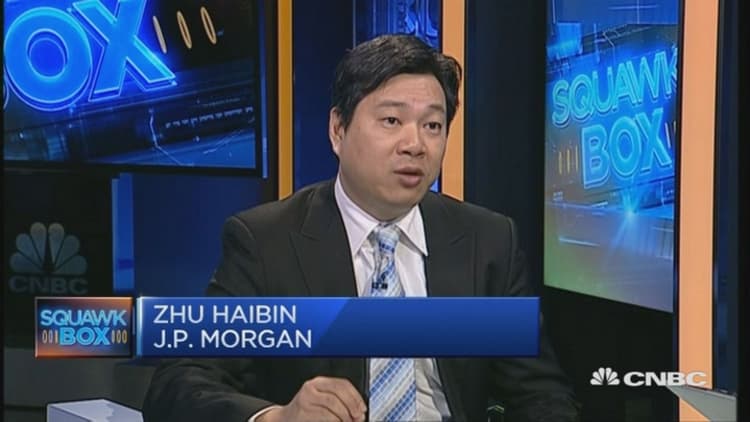
China's consumer inflation quickened to 1.8 percent year-on-year in January but commentators said that boost was just a temporary bit of Lunar New Year cheer, not the sign of improved demand.
The pace of inflation was slightly slower than expected; analysts polled by Reuters predicted the consumer price index (CPI) would come in at 1.9 percent, compared with 1.6 percent posted in December.
The producer price index fell 5.3 percent in January from a year earlier, the National Bureau of Statistics said on Thursday. The market had expected producer prices to fall 5.4 percent on an annual basis after a fall of 5.9 percent the prior month.
Zhu Haibin, chief China economist and head of Greater China economic research at J.P. Morgan, told CNBC that January's consumer price index usually had a "very strong seasonal effect" from the Lunar New Year festival, which traditionally includes feasting, buying new clothing and gifting money.
Fellow economists agreed, explaining that rising food prices had driven the inflation increase, but that the trend could reverse in the coming months
Li-Gang Liu, an ANZ economist based in Hong Kong, told Reuters that vegetable prices played a big part in the higher food prices recorded, rising 14.7 percent on-year on the back of bad weather and the New Year effect.
"Inflation will likely retreat starting in March. High frequency data show that food prices continued to rise in early February, which would lift the overall CPI inflation during the month. However, the rise should be temporary as seasonal factors dissipate," Li-Gang said.
Meanwhile, producer prices declined for the 47th straight month, although the fall moderated slightly.
Zhou Hao, senior emerging markets at Commerzbank in Singapore, explained that overcapacity was hurting the prices of manufactured goods.
"The divergence between CPI and PPI inflation reflects a structural change in China's economy as manufacturing underperforms while consumption holds up," the economist said.
Other economists said that PPI would possibly show some improvement during 2016 but would not turn positive.
- Reuters contributed to this report.

